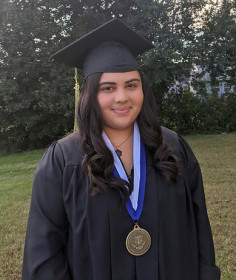890 Drillfield Dr
Blacksburg, VA 24061
About Us
The Research for Alcohol and Couples Health (REACH) Lab aspires to increase community safety by reducing alcohol misuse, intimate partner violence (IPV), and their co-occurrence. Specific goals include (1) identifying for whom, when, and how alcohol use facilitates IPV; (2) increasing understanding of alcohol misuse and IPV among priority and understudied populations; and (3) translating empirical findings into accessible interventions. The REACH Lab uses multi-method approaches (e.g., ecological momentary assessment, self- and partner-report, and biological data such as breath alcohol content samples) to advance the alcohol-related IPV field with the goal of translating evidence-based IPV risk and protective factors into efficacious prevention and intervention programming.
Areas of Interest:
- Alcohol/Drug Use
- IPV (psychological, cyber, physical, sexual)
- Emotion Regulation
- Psychophysiological Correlates of Alcohol-Related IPV
- Jealousy/Infidelity
- Couples
- Trauma
People
Lab Director:

Dr. Meagan J Brem (she/her/hers) is an Assistant Professor in the Clinical Science program within Department of Psychology at Virginia Tech. She completed her Ph.D. in Clinical Psychology at the University of Tennessee in 2021 after completing an APA-accredited pre-doctoral internship at the Charleston Consortium/Medical University of South Carolina (Substance Abuse Track). Dr. Brem's research investigates the intersection of alcohol use and intimate partner violence (IPV) perpetration. To date, her research has focused on mechanistic testing of distal and proximal moderators of the association between alcohol use and IPV, broadening the definition and reach of alcohol-related IPV theories, testing brief, laboratory-based interventions for aggression, examining IPV correlates among various populations (e.g., college students, adolescents, adults arrested for domestic violence, adults with substance use disorders, community couples), and expanding ecological momentary assessment approaches within the field. Her research has been externally funded by the National Institute on Alcohol Abuse and Alcoholism (NIAAA) of the National Institutes of Health, and the American Psychological Foundation.
When she is not in the lab, Dr. Brem might be found going for a run, hiking through one of the local trails with her family, or exploring a new restaurant.
Graduate Students:

Allison Tobar (she/her), M.S.
Graduate Student, Department of Psychology
Prior to joining the REACH Lab, Allison received a B.A. in Criminology and Criminal Justice and a B.S. in Psychology at the University of Rhode Island. In undergrad, she was in various research labs exploring substance use, health disparities, and intimate partner violence on a NIDA K23 grant. After undergrad, she spent two years as a research assistant on a PCORI-funded comparative effectiveness study examining different models of care for pregnant women with opioid use disorder. Additionally, she studied how COVID-19 impacted recovery and prenatal care for mothers with substance use disorders. Allison’s research interests include sexual assault and risky behaviors with an emphasis on substance use while using mixed methods and a community-focused approach. She also has a particular interest in underrepresented populations within these topics.
E-mail: atobar@vt.edu

Marisa Alkalay (she/her), B.A.
Graduate Student, Department of Psychology
Prior to joining the REACH Lab, Marisa received a B.A in Psychology from Bucknell University. During her time as an undergraduate, she was involved in the Campus Sexual Assault Research Lab and helped to create and distribute the annual Campus Climate Survey. She successfully defended her Honors Thesis, which was a mixed methods study examining the effects of gender and Greek life on rape myth acceptance among college students. She spent the last two years as a research technician at the National Center for PTSD at the VA Boston Healthcare System. Marisa was mainly involved in the civilian implementation of a group intervention program for those who use violence in their relationships, as well as a randomized controlled trial investigating the efficacy of a brief motivational enhancement therapy alcohol intervention for veterans prior to the group intervention program. Marisa's research interests include campus sexual assault, rape myth acceptance and intimate partner violence. Overall, she is passionate about using mixed methods to explore the ecological factors associated with an increased risk for violence perpetration, primarily among college students, young adults and underrepresented populations.
Email: marisaalkalay@vt.edu
Participant Information
We have several paid research studies that are ongoing. Please click here if you are interested in enrolling in one of our studies.
Current Research Projects
For an overview of our current research projects, please click here to be redirected to our lab website.
Select Publications and Presentations
- *mentored undergraduate, graduate, or postbaccalaureate authors
- Brem, M. J. (2025). I get drunk on jealousy: Daily jealousy as a proximal antecedent to emerging adults’ intimate partner violence perpetration. Journal of Family Violence. Online ahead of print. doi: 10.1007/s10896-025-00893-2.
- Gilbar, O., Brem, M. J., Charak, R., Nuttman-Shwartz, O., & Dekel, R. (2025). The moderating role of traumatic exposure and ICD-11 CPTSD on the association between couples’ conflicts and cyber dating violence: A daily diary study. Information, Communication and Society. Online ahead of print. doi: 10.1080/1369118X.2025.2492590.
- *Lewis, J. N., *George, B., *Dike, J., Breaux, R., & Brem, M. (2025). Family-of-origin violence, insecure attachment, and depression symptoms in emerging adults: A brief report. Journal of Family Violence. Online ahead of print. doi: 10.1007/s10896-025-00858-5
- Brem, M. J., *Shaw, T.J., & *Tobar-Santamaria, A. (2025). Does cyber dating abuse victimization predict next-day alcohol and cannabis use among college students? American Journal on Addictions, 34(3), 297-304. doi: 10.1111/ajad.13672.
- Brem, M. J., *Tobar-Santamaria, A., *Shaw, T. J., & *Mongan, L. (2025). The Proximal Association Between Cyber and In-Person IPV Among College Students. Journal of Interpersonal Violence, 40(17-18), 4033-4058.
- Grocott, L. R., Brem, M. J., Brick, L. A., Armey, M. F., Stuart, G. L., & Shorey, R. C. (2025). The feasibility of ecological momentary assessment for assessing intimate partner violence in college students with a history of intimate partner violence perpetration. Psychology of Violence, 15(4), 395–405. doi: 10.1037/vio0000565.
- *Edwards, C., *Meier, L., *Westerhold, K., *Botset, K., *Shaw, T., *Mongan, L., & Brem, M. J. (2024). Examining the role of forgiveness in the association between trait mindfulness and psychological partner aggression among dating college students. Partner Abuse, 15(2). doi: 10.1891/PA.2023-0014.
- Brem, M. J., Shorey, R. C., Ramsey, S. E., & Stuart, G. L. (2023). Randomized clinical trial examining the efficacy of a brief alcohol intervention as an adjunct to batterer intervention for women arrested for domestic violence. Psychosocial Intervention, 32(2), 79-88. doi: 10.5093/pi2023a4.
- Brem, M. J., Shorey, R. C., McNulty, J., Elledge, L. C., Temple, J., & Stuart, G. L. (2022). Proximal associations among college students’ alcohol use and cyber partner abuse perpetration. Psychology of Addictive Behaviors, 36(7), 815-823. doi: 0.1037/adb0000818
- Brem, M. J., Shorey, R. C., Stuart, G. L., Elledge, L. C., & Temple, J. R. (2022). A longitudinal investigation of dating abuse victimization, alcohol use, and marijuana use among Latinx adolescents. Partner Abuse, 13(1), 1-16. doi: 10.1891/PA-2021-0013.
- Garner, A. R., Brem, M. J., Shorey, R. C., Hamlin, J., & Stuart, G. L. (2022). Negative urgency moderates the association between compulsive sexual behaviors and sending unsolicited sexts among men in residential treatment for substance use disorders. Computers in Human Behavior, 136, 107385. doi: 10.1016/j.chb.2022.107385
- Brem, M. J., Garner, A. R., Grigorian, H., Florimbio, A. R., Wolford-Clevenger, C., Shorey, R. C., & Stuart, G. L. (2021). Problematic pornography use and physical and sexual intimate partner violence perpetration among men in batterer intervention programs. Journal of Interpersonal Violence, 36(11-12), NP6085-NP6105. doi: 10.1177/0886260518812806.
- Weiss, N. H., Hogan, J., Brem, M., Massa, A. A., Kirby, C. M., & Flanagan, J. C. (2021). Advancing our understanding of the intersection between emotion regulation and alcohol and drug use problems: Dyadic analysis of couples with intimate partner violence and alcohol use disorder. Drug and Alcohol Dependence, 228, 1-7.
- Brem, M. J., Stuart, G. L., Cornelius, T. L., & Shorey, R. C. (2021). A longitudinal examination of alcohol problems and cyber, psychological, and physical dating abuse: The moderating role of emotion regulation. Journal of Interpersonal Violence, 36(19-20), NP10499–NP10519. doi: 10.1177/0886260519876029.
- Brem, M. J., Romero, G., Garner, A. R., Grigorian, H., & Stuart, G. L. (2021). Alcohol problems, romantic jealousy, and cyber dating abuse perpetration among men and women: Towards a conceptual model. Journal of Interpersonal Violence, 36(19-20), NP10205-NP10228. doi: 10.1177/0886260519873333.
- Brem, M. J., Shorey, R. C., Anderson, S., & Stuart, G. L. (2020). Dispositional mindfulness and aggression among adults in residential treatment for opioid use disorder: Preliminary findings from an applied setting. Violence and Victims, 35(6), 828-840. doi: 10.1891/VV-D-18-00036.
- Brem, M. J., Florimbio, A. R., Grigorian, H., Wolford-Clevenger, C., Elmquist, J., Shorey, R. C., Rothman, E. F., Temple, J. R., & Stuart, G. L. (2019). Cyber abuse among men arrested for domestic violence: Cyber monitoring moderates the relationship between alcohol problems and intimate partner violence. Psychology of Violence, 9(4), 410-418. doi: 10.1037/vio0000130.
- Brem, M. J., Khaddouma, A., Elmquist, J., Florimbio, A. R., Shorey, R. C., & Stuart, G. L. (2019). Relationships among dispositional mindfulness, distress tolerance, and women’s dating violence perpetration: A path analysis. Journal of Interpersonal Violence, 34(14), 2996-3016. doi: 10.1177/0886260516664317.
- Brem, M. J., Shorey, R. C., Rothman, E. F., Temple, J. R., & Stuart, G. L. (2018). Trait jealousy moderates the relationship between alcohol problems and intimate partner violence among men in batterer intervention programs. Violence Against Women, 24(10), 1132-1148. doi: 10.1177/1077801218781948.
- Brem, M. J., Florimbio, A. R., Elmquist, J., Shorey, R. C., & Stuart, G. L. (2018). Antisocial traits, distress tolerance, and alcohol problems as predictors of intimate partner violence in men arrested for domestic violence. Psychology of Violence, 8(1), 132-139. doi: 10.1037/vio0000088.
- Brem, M. J., Wolford-Clevenger, C., Zapor, H., Elmquist, J., Shorey, R. C., & Stuart, G. L. (2018). Dispositional mindfulness as a moderator of the relationship between perceived partner infidelity and women’s dating violence perpetration. Journal of Interpersonal Violence, 33(2), 250-267. doi: 10.1177/0886260515604415.
- Temple, J. R., Choi, H. J., Brem, M. J., Wolford-Clevenger, C., Stuart, G. L., Peskin, M., & Elmquist, J. (2016). The temporal association between traditional and cyber dating abuse among adolescents. Journal of Youth and Adolescence, 45, 340-349. doi: 10.1007/s10964-015-0380-3.
- Brem, M. J., Spiller, L. C., & Vandehey, M. A. (2015). Online mate-retention tactics on Facebook are associated with relationship aggression. Journal of Interpersonal Violence, 30(16), 2831-2850. doi: 10.1177/0886260514554286.
Join Us
Information for potential graduate student applicants:
Dr. Brem WILL NOT be reviewing graduate school applications this year (i.e., for applications submitted Dec. 1, 2025).
Learn more about the Clinical Science Ph.D. Program at Virginia Tech and instructions on how to apply.
Information for potential research assistant applicants:
If you are interested in being a Research Assistant within the REACH lab please email Dr. Brem at mbrem@vt.edu.
